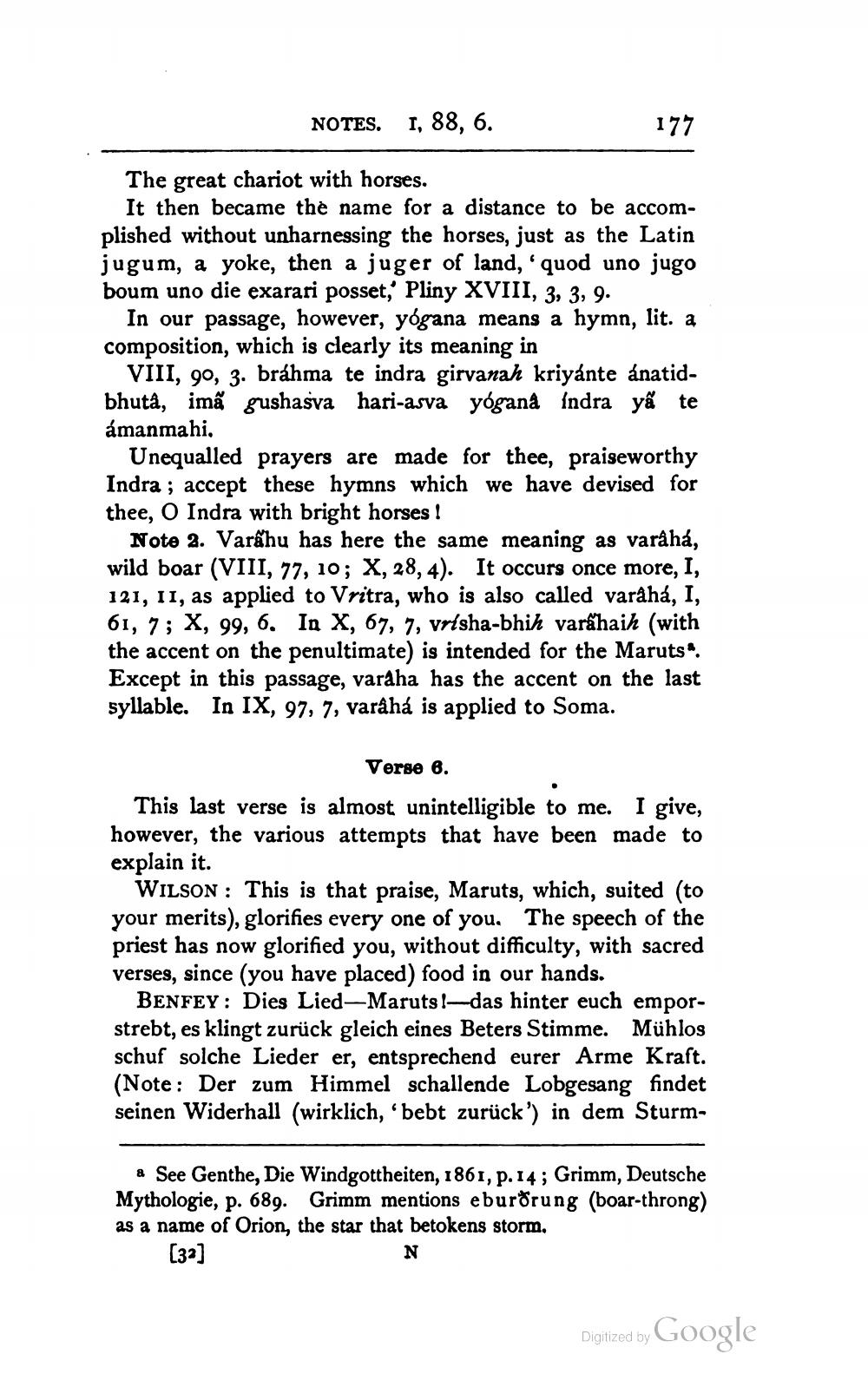________________
NOTES. 1, 88, 6.
177
The great chariot with horses.
It then became the name for a distance to be accomplished without unharnessing the horses, just as the Latin jugum, a yoke, then a juger of land,' quod uno jugo boum uno die exarari posset, Pliny XVIII, 3, 3, 9.
In our passage, however, yogana means a hymn, lit. a composition, which is clearly its meaning in
VIII, 90, 3. brahma te indra girvanah kriyante ánatidbhutà, imã gushasva hari-asva yogana indra yã te ámanmahi.
Unequalled prayers are made for thee, praiseworthy Indra ; accept these hymns which we have devised for thee, O Indra with bright horses !
Note 2. Varahu has here the same meaning as varahá, wild boar (VIII, 77, 10; X, 28, 4). It occurs once more, I, 121, 11, as applied to Vritra, who is also called varahá, I, 61, 7; X, 99, 6. In X, 67, 7, vrlsha-bhih varáhaih (with the accent on the penultimate) is intended for the Maruts. Except in this passage, varaha has the accent on the last syllable. In IX, 97, 7, varâhá is applied to Soma.
Verse 6. This last verse is almost unintelligible to me. I give, however, the various attempts that have been made to explain it.
WILSON: This is that praise, Maruts, which, suited (to your merits), glorifies every one of you. The speech of the priest has now glorified you, without difficulty, with sacred verses, since (you have placed) food in our hands.
BENFEY: Dies Lied-Maruts l_das hinter euch emporstrebt, es klingt zurück gleich eines Beters Stimme. Mühlos schuf solche Lieder er, entsprechend eurer Arme Kraft. (Note: Der zum Himmel schallende Lobgesang findet seinen Widerhall (wirklich, 'bebt zurück') in dem Sturm
a See Genthe, Die Windgottheiten, 1861, p. 14; Grimm, Deutsche Mythologie, p. 689. Grimm mentions eburðrung (boar-throng) as a name of Orion, the star that betokens storm.
[32]
Digitized by
Digized by Google




